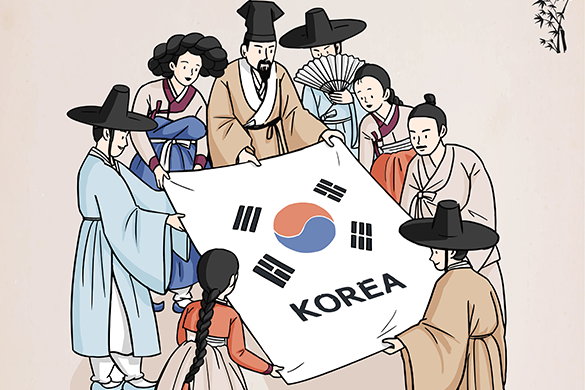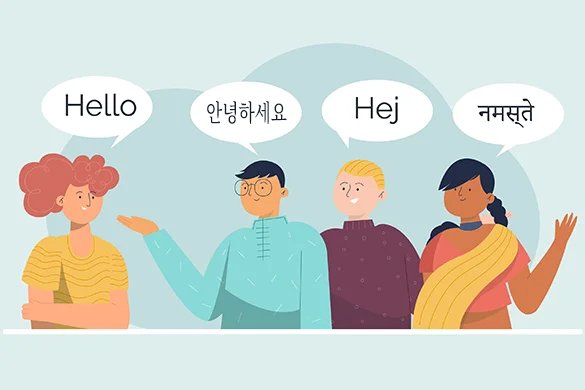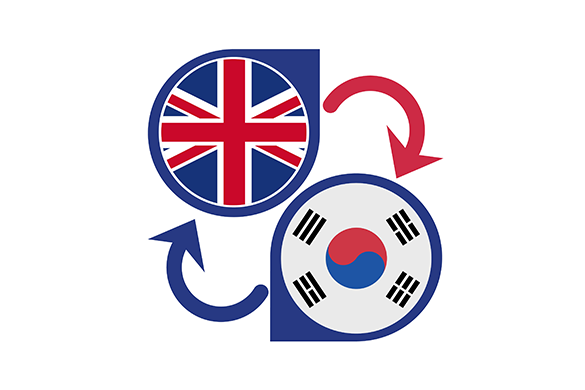Rosetta Translation provides a full range of Korean translation services to companies and individual clients worldwide.

Rosetta Translation can certify all your Korean translations, and our certifications are routinely accepted by authorities around the world.
When contacting us, please specify if you require a certified translation, a sworn translation, a notarised translation or a legalisation, and ideally, what authority your certification is required for.
If you are at all unsure, feel free to ask to talk to any of our experienced account managers to discuss your particular circumstances. They have almost certainly come across your issues before, and will be more than happy to guide you in the right direction.
For a free instant quote, please fill in the form on this page, email us at quote@rosettatranslation or contact us at any of our local offices in London, Shanghai, New York, Paris or Luxembourg.
Rosetta Translation is a multi-sector Korean translation specialist. We have a wide range of sector expertise, and some of the areas that we have the deepest experience in include the following:
Legal translation
Our professional Korean legal translators accurately translate all any kind of legal documents, including of course the translation of agreements and contracts.
Financial translation
We regularly translate finance-related documents such as financial statements, regulatory filings and insurance reports.
Technical translation
Our broad expertise in technical translation ranges from the translation of technical reports to product and user manuals.
Medical translation
Rosetta routinely translates medical reports, pharmaceutical research reports and medical patents.
We assign every translation to the most appropriate specialised team of highly qualified Korean translators, proofreaders and editors, thereby ensuring a consistently excellent quality of Korean translation services in each of these areas.
Combined with our use of translation technology and our extraordinary flexibility as regards client needs, this results in the professional and reliable Korean translation service that our regular customers expect and value.
We also provide Korean interpreting services in London and worldwide.
For a free instant quote, please contact us at any of our local offices in London, Shanghai, New York, Paris or Luxembourg.

Rosetta has achieved the rare distinction amongst translation companies to have both the prestigious ISO 9001:2015 and the DIN EN 15038 certification, the only norm specifically designed for translation agencies. Our customers can therefore rest completely assured of the consistently excellent quality of our Korean translations.
Korean Translations can be certified, notarised and legalised to meet your exact requirements.
We only use experienced, native Korean translators for all our English-Korean translation assignments. They are capable of translating in a number of Korean dialects (Seoul, P’yŏngan, Gyeonggi, etc.), all of whom specialise in a number of different areas of translation to give the best possible results for our customers. We then make sure the formatting is correct, which is particularly important for Korean, providing a final Korean translation of excellent quality.
Korean (한국어) is an important world language, ranked 14th in terms of native speakers, of which there are some 71 million people in both North and South Korean and in some places in neighbouring China. Worldwide, the figure is closer to 80 million speakers.


Irrespective of whether your Korean-English translation assignment is highly complex and technical or rather basic in style and content, Rosetta Translation always has experienced translators on hand to deliver, with expertise in a number of areas, from technical computer jargon to legal terminology.
As an internationally aware company, we operate as worldwide a service for our English translation as we do for our other languages. This means that we can provide English in any of the many existing dialects, whether you need British English, American English, Australian English, even Jamaican English, we have the know-how and the expertise.
When translating from Korean into English and vice versa, because of the myriad of differences between the two languages, several potential pitfalls in translation can, and do, arise, especially when a translation is carried out by a non-native speaker.
One potential issue is the linguistic characteristic of plurals. In English, you can have one pencil, or two pencils, one hat, two hats etc. Pluralisations do not exist in the Korean language, so poor translations can result in the mismatch of quantity and the plural form of a noun, making your translation miss a beat in its flow, or just plain confusing.
Another more often seen error is capitalisations and their use in English. Korean does not have an alphabet that would distinguish between words that would require capitalisations (like Korea, English etc.) and this would mean proper nouns that would require this in English can often be missed if a non-experienced or non-native English translator does the translation.
A key issue when going from English into Korean is the use of status indicators in Korean, which are extremely important in both written and spoken Korean. A status indicator is another way of saying honorifics, which you may already know exist in other languages, such as Japanese. The use of honorifics indicates a writer’s relationship to their audience and in Korean, this includes a change in nouns, verbs and forms of address. Therefore, knowing the target audience of a translation from English is paramount in making sure your translation addresses the audience appropriately. Poor use of honorifics can make a translation, at best, sound odd or confusing, and at worst, offend your readers.
Korean speakers often say “our” or “we” instead of “my” or “me”. This practice is rooted in Confucian traditions and communal values, spread to Korea as part of the Chinese influence (which started as far back as 4th century AD). Examples of this are Koreans often referring to Korea as “our country” instead of “my country”. This use of a plural pronoun to denote a singular individual also exists in English, so non-experienced or non-native translators may translate one into the other, however, in English, this change in singular and plural comes from the Royal We, which is a way of speaking reserved for the monarch only.
Seeing all the potential pitfalls of Korean-English translation, you can appreciate why machine translation might not be a good idea as a language solution, especially for this pair. That’s why we at Rosetta Translation only work with expert translators with extensive linguistic experience that solely translate into their native language. This means that you can be confident that your translation from Korean to English won’t suddenly sound like the Queen’s Speech or worse, from English to Korean, offend your readers using the improper tone.
Hangul is the name of the Korean alphabet and was created in the 15th century by King Sejong the Great. Before then, Koreans used the Chinese alphabet and characters (called Hanja). This was difficult for commoners to master, and thus, Hangul was created for the purpose of literacy. There are 14 consonants and ten vowels and letters are grouped together in syllable blocks. This presents an interesting quirk to English-Korean translations as this difference in alphabet means that Korean translations usually take up less horizontal space than the English source text. On average, the Korean version contracts by 10-15%. However, hangul is also taller than Latin text so it requires more line height. Another quirk is that as the Korean characters are more complex (as mentioned before, each “character” is a small group of vowels and consonants), so translators need to be mindful as they may need to increase the font size to keep the writing legible.
So if you see your translation looks a little different, with larger text and the amount of pages don’t match, rest assured that our translators are expertly ensuring that your text is legible and clear, making sure that your translation always hits the mark.






What is the UN French Language Day? On 20 March, we once again celebrate UN French Language Day, a global celebration of linguistic diversity and cultural exchange. Created by the United Nations in 2010, this day is to remind us …


© 2025 All Rights Reserved